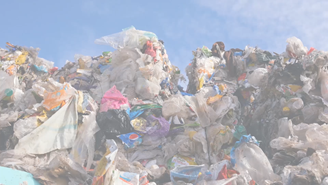Global Standards Screening
Sustainalytics’ Global Standards Screening product provides an assessment of a company’s impact on stakeholders and the extent to which a company causes, contributes or is linked to violations of international norms and standards. Download the brochure to learn more about how Sustainalytics identify the Global Sustainability Signatories.
Product Involvement
Sustainalytics' Product Involvement research helps identify companies involved in a range of products, services and business activities for screening purposes. Each activity is accompanied with a concise summary of the way the company is involved in the relevant product or activity.
Feeding the Future
Agriculture is estimated to account for one-quarter of the world’s greenhouse gas (GHG) emissions, 80 percent of deforestation, 70 percent of water use and 78 percent of ocean and freshwater pollution. This engagement theme aims to contribute to a more sustainable trajectory for the future of food.
Thematic Engagement
The purpose of Thematic Engagement is to influence companies to proactively manage specific ESG risks and opportunities, as well as enabling the participating investors to play an active role in addressing material, shared sustainability challenges through raising sector and systemic standards in alignment with the Sustainable Development Goals (SDG) agenda.
Thematic Engagement Bundle
Our Comprehensive Thematic Engagement program combines a set of four thematic engagements in a single package: Climate Transition, Human Capital and the Future of Work, Plastics and the Circular Economy and Tomorrow’s Board. The themes have been selected to give investors the broadest possible coverage of E, S and G topics with exposure to diverse industries and companies.
Human Capital and the Future of Work
The Fourth Industrial Revolution is accelerating. Technological progress, globalization and demographic shifts, will bring structural changes and disruptions to society and labor markets. This engagement supports investors in understanding how companies can proactively manage workforce needs and transitions for a sustainable labor market.
Responsible Cleantech
While being a vital part of the response to climate change as well as other economic and societal needs, the growing supply of cleantech products also entails environmental and social challenges within the various processes across the value chain. This engagement aims to encourage and enable the cleantech industry to grow in a more responsible manner.
Food Supply Chain
This engagement focuses on addressing risks related to child- and forced labor in the targeted companies’ supply chains, as well as to remediate potential adverse labor rights impacts. Particular focus is placed on the identified high-risk commodities, namely coffee, rice, sugar, tea and tomatoes.
Plastics - A Material Issue for Investors
The plastic waste issue is currently one of the fastest growing environmental topics on the political and business agenda. Plastic is a vital product to the global economy; however, the way it is being produced and managed is unsustainable, especially at the use and after‐use phases. The carbon footprint and emissions associated with plastic production along with the issue of the environmental and potential health impacts of plastic waste are a matter of growing concern for investors. In light of the environmental, social and financial challenges, the linear “take, make and dispose” approach cannot continue. The alternative is a circular economy approach, which focuses on maximizing resource value, making resource use more efficient and extending product value during use.


.tmb-small.jpg?Culture=en&sfvrsn=655ef212_2)


.tmb-thumbnl_rc.png?Culture=en&sfvrsn=ce56d6ce_2)






.tmb-thumbnl_rc.png?Culture=en&sfvrsn=1e80d306_2)
.tmb-thumbnl_rc.png?Culture=en&sfvrsn=c0ab02a8_2)
.tmb-thumbnl_rc.png?Culture=en&sfvrsn=b5978b3e_2)

.tmb-thumbnl_rc.png?Culture=en&sfvrsn=c0620b0d_2)


